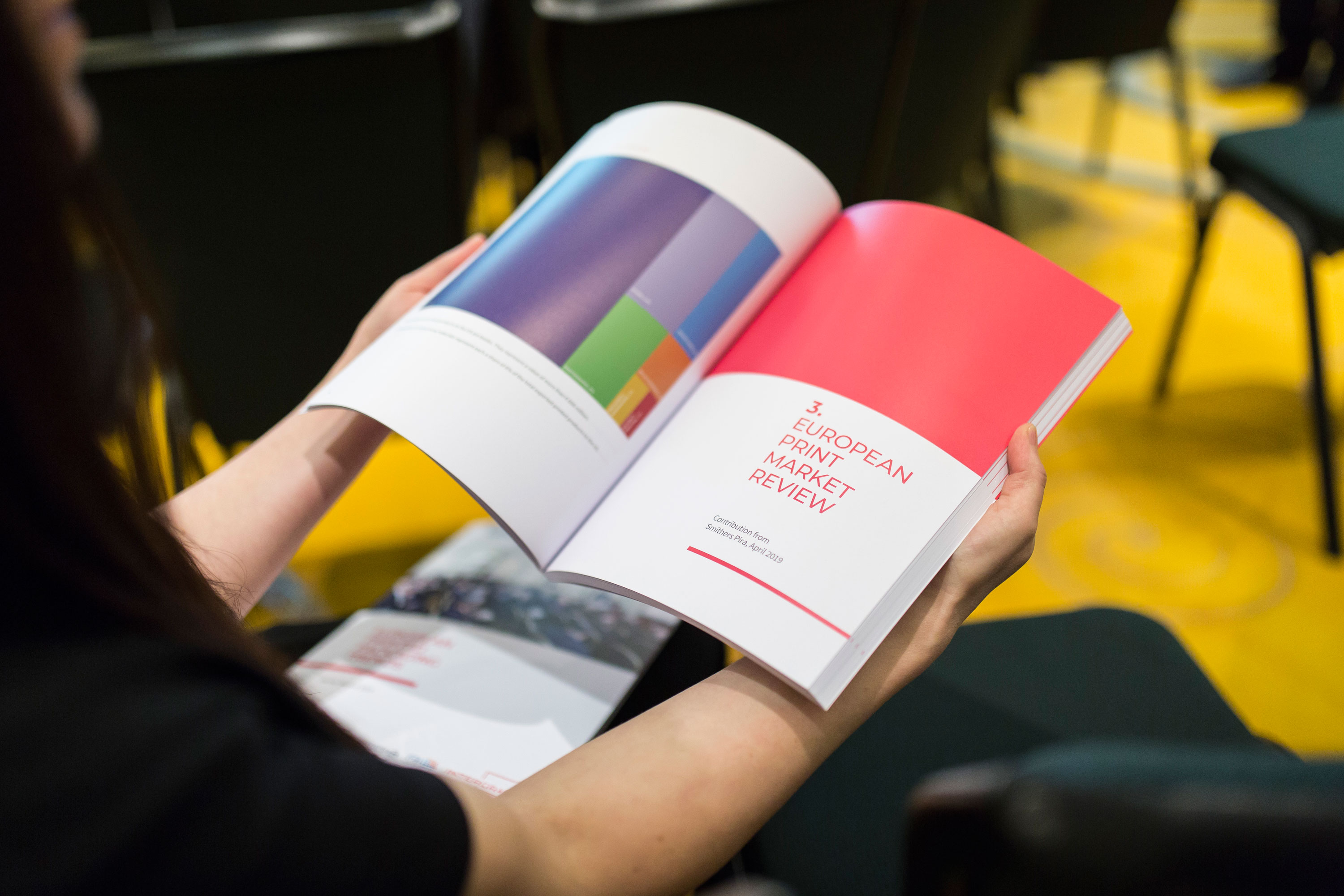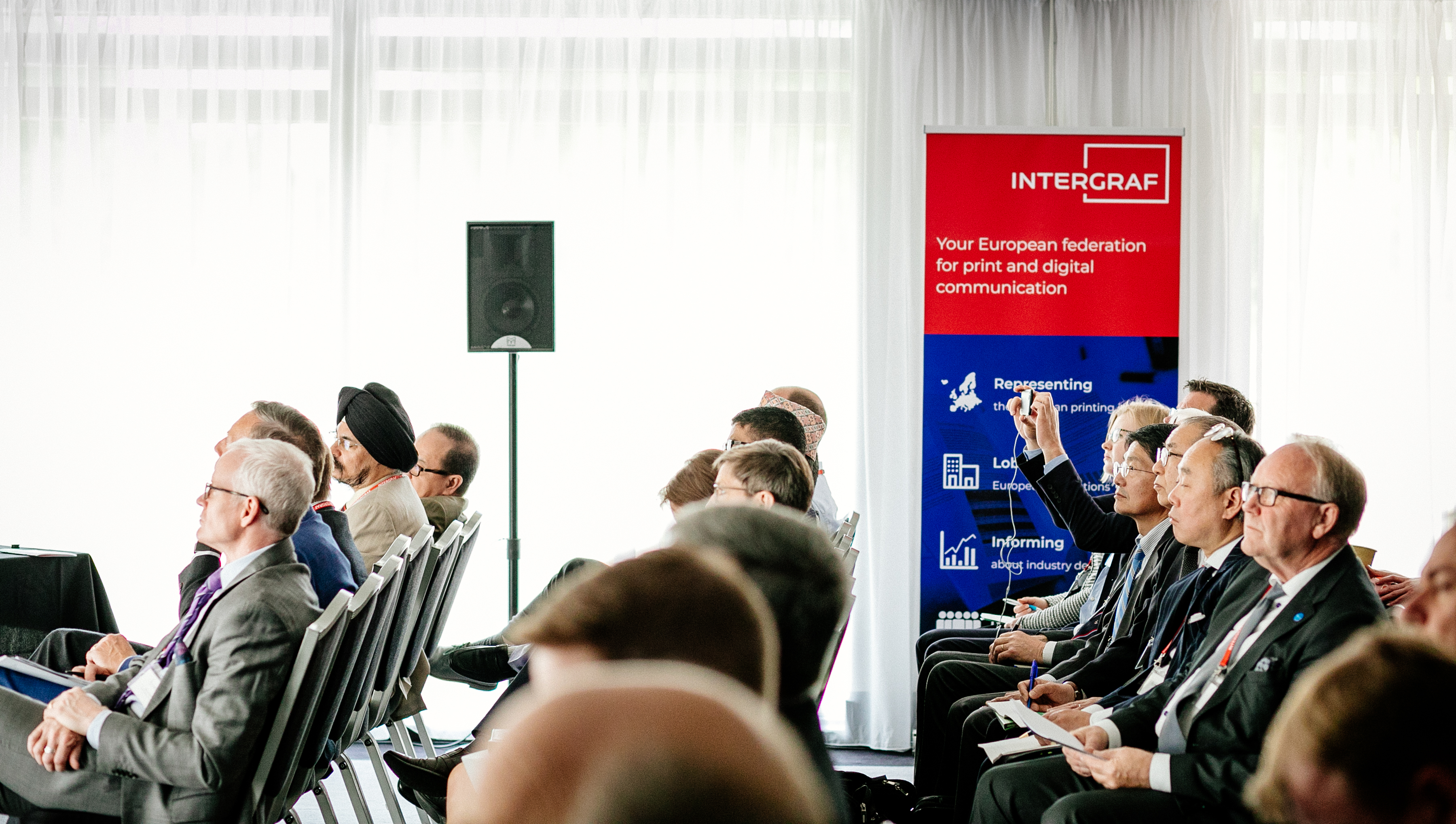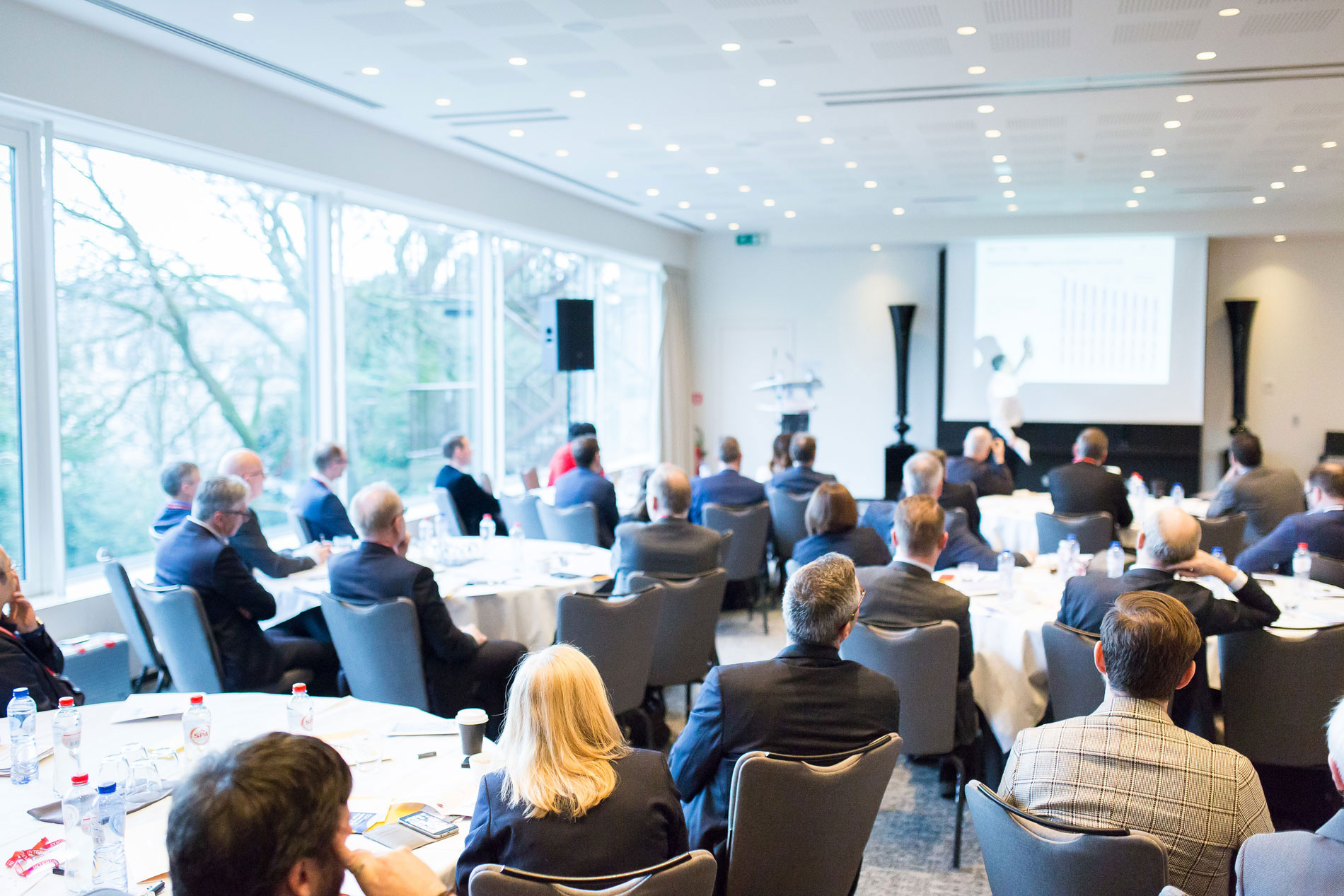Intergraf Secretary General Beatrice Klose on challenges and future resilience of European graphic industry
30 November 2023

Grafiska Företagen, the Swedish member association of Intergraf, recently conducted an interview with our Secretary General, on Intergraf's pivotal role as the unified representative of the European graphic industry within the EU. The interview delves into the significant challenges confronting graphic companies continent-wide, ranging from issues of skills supply and environmental considerations to the transformative impact of digitalization. Beatrice underscores the crucial need to amplify the voice of the graphic industry within the EU, addressing ongoing concerns on the European agenda, including environmental sustainability, competitiveness, and the evolving landscape for printed products. Additionally, the interview provides insights into the future of the graphic industry, highlighting its resilience and adaptability in the face of ongoing changes.
Read the English translation below. The original text of the interview (in Swedish) is available here.
“Many policy makers believe that digital alternatives are sufficient”
Most people are not aware of all the printed products that our industry produces. This is the opinion of Beatrice Klose, who, after 20 years as the Secretary General of Intergraf, knows how important it is for the voice of the graphic industry to be heard in Brussels. “We are a small but important industry. And 600,000 people and 110,000 companies in the graphic industry in Europe, that’s quite a lot of people after all,” she notes.
Intergraf is the joint representative of the European graphic industry in the EU. Beatrice Klose emphasizes two main tasks for the organization: firstly, to be a common platform for national organizations in the industry and for sharing information between countries, and secondly, to influence various issues in the EU.
– A lot of legislation happens in Brussels, so every industry sector needs a strong voice on the spot. We advocate for the interests of the graphic industry and have direct contact with the Parliament and the Commission in the early stages when laws are being developed. One advantage of being a member of Intergraf is that we monitor developments and inform about upcoming regulatory obligations and rules before they actually become legal requirements, says Beatrice Klose.
The challenges are the same for graphic companies across Europe, she argues. It is largely about skills supply, environmental issues, and the image of the industry. Therefore, it is important to share experiences and information and to keep track of what is happening in other countries.
– For example, Eva Glückman, the CEO of The Association of Swedish Graphic Industry, has presented to the other member organizations what is happening in Sweden now with increased funding for school books, which is excellent and can serve as a good example for other countries.
Beatrice Klose herself ended up in the graphic industry by chance but has truly come to appreciate working for the industry, she says.
– I still blush when I think of my job interview. When asked why I wanted to work for Intergraf, my answer was that I like to read. It shows that I didn't know much about the graphic industry and the multitude of fantastic products the industry produces, she says, smiling at the memory.
Digitalization is putting pressure on the graphic industry.
Intergraf actively works on advocacy, networking, information sharing, and campaigns. Important issues for the industry currently on the EU agenda include environmental and sustainability issues such as recycling and carbon footprint, competitiveness and tax regulations, skills supply, and thethreat to printed products in the age of digitalization.
– On the sustainability and environmental front, there are several legislative proposals from the EU Commission. Recently, the EU Parliament voted on legislation regarding packaging and packaging waste. There, we have worked to make policy makers understand the recycling process and the important role of paper-based packaging. In Europe, we are masters of paper and board recycling, with over 80 percent of paper and board being recycled, which no other packaging product can match.
Another current issue is digitalization, which puts the graphic industry under pressure. According to Beatrice, many policy makers do not realize the significant advantages of print but believe that digital alternatives are sufficient.
– They do not think about all the printed products that our industry produces, from the money we use or the passport we travel with to information sheets, supermarket packaging, outdoor advertising, and prints on plastic surfaces, furniture, or floors. The printing industry affects our daily lives in so many ways.
– Another important message to policy makers in times of digitalization is that research shows that you remember better what you read when you read on paper. Literacy is the foundation of democracy, and our industry continues to be important here.
Another area that Intergraf is currently working on is how the proposal “The European deforestation regulation” can be best implemented. The proposal involves tightened legislation to ensure that forest-based products released on the European market do not come from illegally logged forests.
– The tightening will bring back some of the production to Europe, where the forests are legally logged, which is good. At the same time, it will require a bit more from the printing companies here in Europe that need to get all the information from their paper suppliers, explains Beatrice.
Is it difficult to make the voice of the graphic industry heard in the EU?
– I have to say that it is becoming more and more complicated, and the main reason is that the Commission issues increasingly larger and broader legislative packages, which do not only target a specific product or industry. Printed medical leaflets, for example, are a very small issue in enormous legislation dealing with life-saving drugs, with many other significantly larger issues. So it becomes harder to make your voice heard, but we have many allies in Brussels and often work together with other associations.
Regarding the future of the graphic industry, Beatrice Klose is hopeful.
– The graphic industry has undergone many changes and will continue to do so. Seeing how the industry evolves, modernizes, and reinvents itself is what keeps me here. And one should remember that the graphic industry is over 550 years old, which shows how resilient it is. In addition, printed products are important to many other industries, something that policy makers also need to understand.
Beatrice Klose is the Secretary General of the European industry organization Intergraf, with 22 national graphic associations from 21 European countries, including Graphic Companies, and 11 associated members around Europe.
From Germany. Studied business administration and European studies and has also worked in the USA and Germany. Did an internship at the EU Commission after her studies and then stayed in Brussels, where she has now lived and worked for 25 years.
Enjoys European culture, history, politics, and languages and knew early on that she wanted to work internationally. Likes reading, cooking, traveling, and being outdoors running or hiking. “And I really enjoy working with my team in Brussels; they are motivated people who make me come to work with a smile every morning.”






